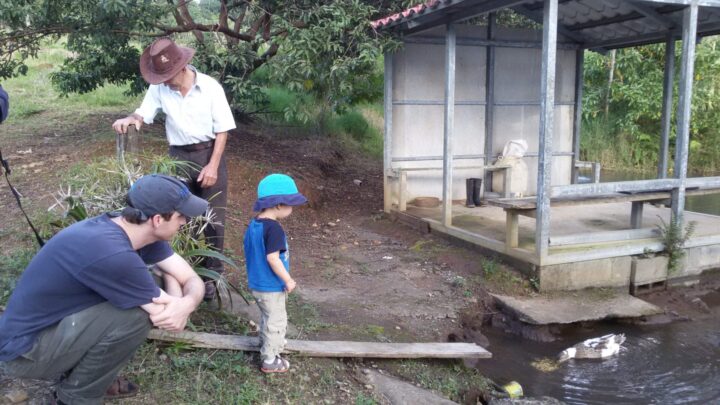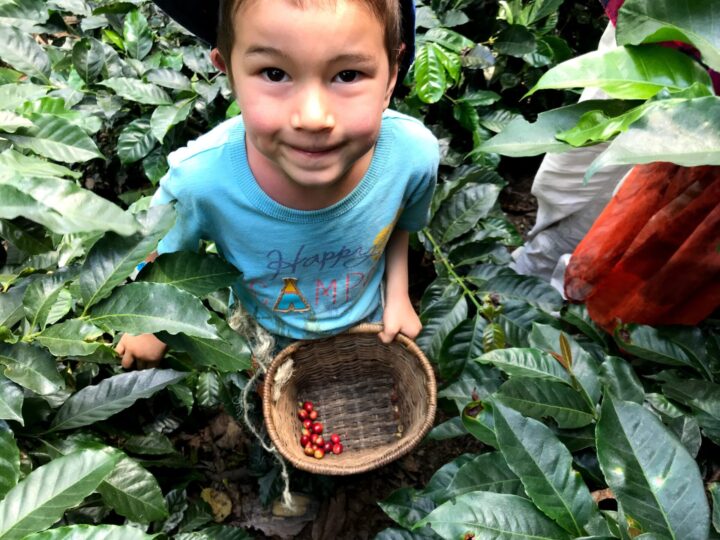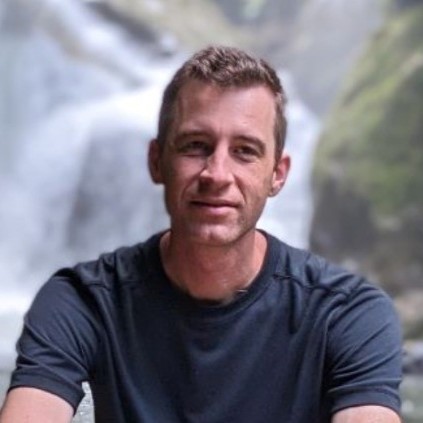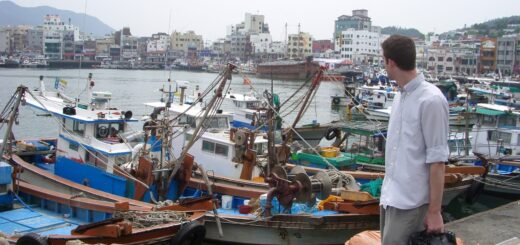An Awkward Conversation: Why a Gap Year with the Kids?

Now that I am responsible for three young boys what does that mean for my long-time dream of leaving it all behind and traveling the world? And how do I explain myself to the doubters?
The Question
It wasn’t the first question I was expecting.
I sat in my parents’ dining room on a sunny afternoon overlooking the Wolf River in northern Wisconsin. I had just dropped the bomb: we were planning to take a year off to “travel the world”!
I already knew this was going to be awkward at best. Make no mistake, my parents love to travel. We often went on vacations as children. Door County, Wisconsin. Orlando. Niagara Falls.
I don’t fault them for not traveling internationally; we weren’t wealthy. But as I grew older and began to travel on my own, I discovered that I traveled for very different reasons than my parents. I wanted to learn the local language, understand the culture, try to assimilate. My parents wanted to relax and be entertained. I am drawn to a more humble and simple existence. My parents seek comfort. I thrill to try a novel cuisine. My parents like their steak and salad with ranch dressing.
None of this is meant as a jab at my parents. Travel preferences are personal. The point is that the decision my wife and I made to shake up our family’s life with a “gap year” was not going to make intuitive sense to the folks who raised me.
I was expecting the money question. I was expecting questions about safety. I was even expecting the “whadabout school” question. Those all got asked, eventually. But the question my dad hit me with first was, “Really? With the kids? Why don’t you wait until they’re out of the house?”
With the Kids? Yes!
We have three boys. As of this writing they are seven, four, and two. The oldest, Oliver, is 110% on board with our travel plans. He thrives on novelty and anything that rocks the boring old boat. Even a simple furniture rearrangement does wonders for his morale.
I suspect our middle child, Finley – nick-named “Weeds” (one day I’ll explain in another post) – hasn’t quite wrapped his mind around the momentousness of our plan. Like a Zen-master, he lives in the moment, and we love that about him. As long as we are together he’ll be alright, taking each day as it comes.
My two-year-old’s ability to process language is limited to the everyday and the scatological, so he will be in for a surprise next year.
Why did the question about bringing the kids throw me off balance? Because bringing the kids is the whole point!
Life Lessons
In hindsight, the question makes sense if you dwell on the downsides of traveling with small children.
Will they appreciate the experience? Will they tolerate the simple lodging? The spicy food? Their playmates speaking words they don’t understand? More to the point, will they make it difficult for the adults to enjoy the experience?
Traveling with the kids does pose some logistical challenges. Are we capable of keeping on top of their education? Will they get homesick? Will we be able to afford every ticket and fee multiplied by five?
I can’t answer all those questions immediately, except to say others have taken similar journeys with small kids and have not only survived but flourished as a family. Still, it’s a leap of faith.
One of my deepest reasons for embarking on this life-sized rabbit trail is the chance to refocus our attention on being together as a family. The common truism dispensed by parents with adult children is “enjoy them while their young – it goes fast!” Easier said than done.
Finding the time and the mental space to just enjoy that we are alive and together can be a challenge in these younger-family years. There is just so much to “set up” at that stage: upgrading to a big enough home and car; building career(s); saving for college; making doctor’s appointments; keeping on top of school logistics – the list goes on and on.
I also envision this gap year as a unique and priceless education – in terms of knowledge and in terms of spiritual and character growth. Some lessons are obvious: appreciation of other cultures, acquiring multiple languages, getting a taste of how the rest of the world lives.
But digging deeper, there are few other areas of growth I hope the kids (and adults) benefit from.
You Write Your Own Script
I want my kids to learn that they are the authors of their own life’s story. What better way to teach them this than to live by example?
I am aware that economic status can limit options and all this talk about being an “author of your own life” sounds privileged, if not overly idealistic. I do not deny my relative privilege, but social pressure can exert strong a force—on rich and poor alike—locking us into our particular rut. Sometimes we just want to give the wheel a sharp turn.
It takes some courage and deep reflection to know when and how to leave the post you have been assigned by society (i.e. work, friends, family). For the sake of our boys’ future life satisfaction and potential gifts to the world, I want them to know they can take meaningful risks. That they are permitted to ignore those who say they can’t and shouldn’t.
Where do things come from?
Recently, a large container ship, the Ever Given, lodged itself diagonally in a narrow stretch of the Suez Canal like a large pill in a dry throat. The fallout was immediate. Hundreds of ships were delayed resulting in billions of dollars of losses. Upon viewing the images of that maritime traffic jam, it occurred to me how little I consider or know much about these global systems that affect my daily life.
Recently, our family traveled to the Eje Cafetero, an area in the highlands of Colombia where coffee is the dominant crop. I am an avid coffee drinker; a connoisseur or snob depending on your point of view. So how is it that I did not know that coffee beans on the bush are white, sweet and slimy, and come encased in a bright red outer jacket? Yes, I knew coffee beans were roasted, but somehow I still imagined them growing on the (bush? plant? tree?) as the black, desiccated, fragrant beads in my fresh, locally roasted bag of whole beans.

It strikes me as amazing that despite the tens of thousands of hours of schooling we endure, most of us don’t know how the most common items come to be or how they get to us. Would knowing these things affect how we interact with our world?
Putting it in Context
When I started traveling as a young adult, I noticed how the places I visited were different than what I had imagined. Rather than danger around every corner people were… friendly, helpful, honest. A taco in Mexico wasn’t the same as the food by the same name in the US – it was tastier. Countries weren’t as simple as that one imagined landscape, cuisine, or culture—they contained diverse regions and multiple cultural identities.
I see our gap year as a chance to give our children a “world class” education (pun intended). The complexity, the wonders—and sometimes the injustices and tragedies—of the world cannot be taught in a way that is truly grasped with a book and a pull-down map (do they still use those?). That method of teaching about the world inevitably leads to overly simplistic caricatures received by a classroom of bored kids wondering what it has to do with them. If they are paying attention at all.
I see this epic adventure as a way to help my children become citizens of the world, to view people from other parts of the world in a fair and sympathetic light, and to understand the benefits, drawbacks and tradeoffs of being born citizens of their homeland.






